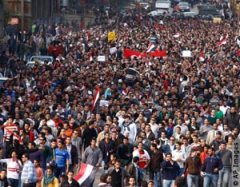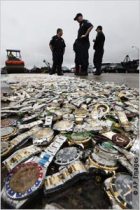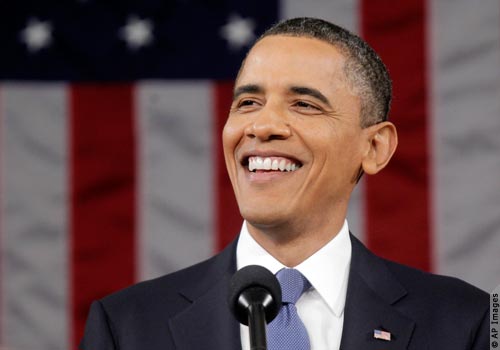The U.S. calls for calm in unrest-torn Egypt and urges governments in the Middle East and North Africa to engage with protesters. Obama’s newly minted agenda for 2011 America will require the backing of Congress. Financial companies need the public’s trust.
Democracy in Egypt
(mobile version)
Secretary of State Hillary Rodham Clinton urges an orderly and peaceful transition to democratic and economic reforms in Egypt, but also acknowledges that it will take considerable time. In a series of television news interviews, Clinton, above, said that violence, looting or criminal acts will not move the political process forward in a productive way that will be satisfying for the Egyptian people.
U.S. Calls for Calm in Egypt
(mobile version)
The Obama administration calls on the Egyptian government to restrain its security personnel and on anti-government protesters to express themselves peacefully as it continues to monitor the country through its fourth consecutive day of political unrest. “These protests underscore that there are deep grievances within Egyptian society, and the Egyptian government needs to understand that violence will not make these grievances go away,” says Secretary of State Hillary Rodham Clinton.
U.S. Urges Engagement with Mideast Protesters
(mobile version)
The Obama administration urges governments in the Middle East and North Africa to “actively respond” to the concerns of younger populations who are voicing their protests in the streets.
Obama’s Agenda Need Support on Capitol Hill
(mobile version)
In his State of the Union President Obama called for new investments in education, infrastructure and technology, among other items, but his plans will go nowhere without backing on Capitol Hill. Spending and other economic issues will likely dominate the first few months of the new Congress, two former representatives tell participants in a U.S. Department of State digital video conference.
Companies Bank on Trust
(mobile version)
Reports of excessive executive compensations, greed, irresponsible risk-taking and a lack of transparency have amounted to the greatest challenge to financial companies’ credibility in years. It has also been a wake-up call to companies in all sectors.














